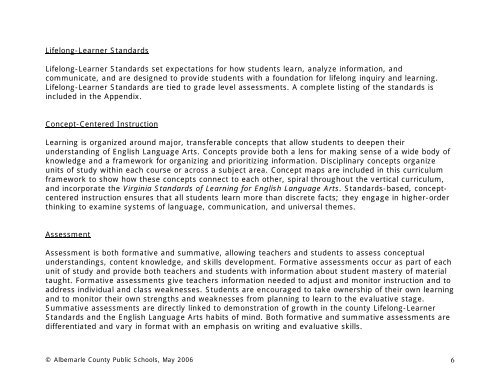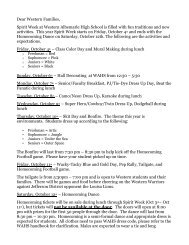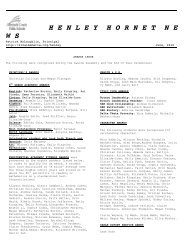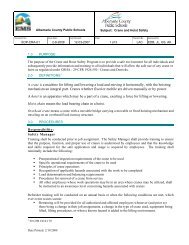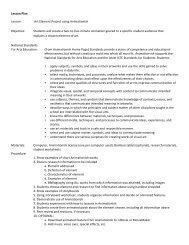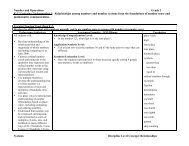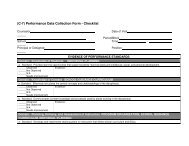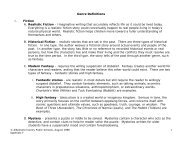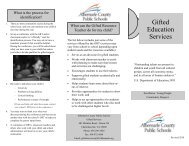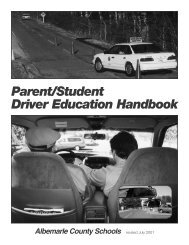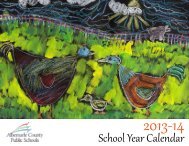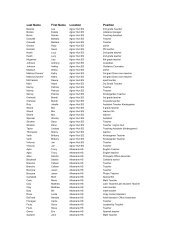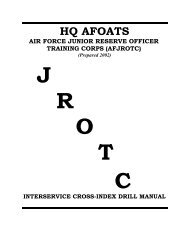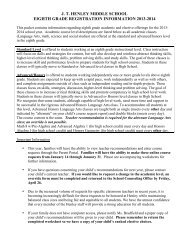Language Arts/English Curriculum Frameworks - Albemarle County ...
Language Arts/English Curriculum Frameworks - Albemarle County ...
Language Arts/English Curriculum Frameworks - Albemarle County ...
You also want an ePaper? Increase the reach of your titles
YUMPU automatically turns print PDFs into web optimized ePapers that Google loves.
Lifelong-Learner Standards<br />
Lifelong-Learner Standards set expectations for how students learn, analyze information, and<br />
communicate, and are designed to provide students with a foundation for lifelong inquiry and learning.<br />
Lifelong-Learner Standards are tied to grade level assessments. A complete listing of the standards is<br />
included in the Appendix.<br />
Concept-Centered Instruction<br />
Learning is organized around major, transferable concepts that allow students to deepen their<br />
understanding of <strong>English</strong> <strong>Language</strong> <strong>Arts</strong>. Concepts provide both a lens for making sense of a wide body of<br />
knowledge and a framework for organizing and prioritizing information. Disciplinary concepts organize<br />
units of study within each course or across a subject area. Concept maps are included in this curriculum<br />
framework to show how these concepts connect to each other, spiral throughout the vertical curriculum,<br />
and incorporate the Virginia Standards of Learning for <strong>English</strong> <strong>Language</strong> <strong>Arts</strong>. Standards-based, conceptcentered<br />
instruction ensures that all students learn more than discrete facts; they engage in higher-order<br />
thinking to examine systems of language, communication, and universal themes.<br />
Assessment<br />
Assessment is both formative and summative, allowing teachers and students to assess conceptual<br />
understandings, content knowledge, and skills development. Formative assessments occur as part of each<br />
unit of study and provide both teachers and students with information about student mastery of material<br />
taught. Formative assessments give teachers information needed to adjust and monitor instruction and to<br />
address individual and class weaknesses. Students are encouraged to take ownership of their own learning<br />
and to monitor their own strengths and weaknesses from planning to learn to the evaluative stage.<br />
Summative assessments are directly linked to demonstration of growth in the county Lifelong-Learner<br />
Standards and the <strong>English</strong> <strong>Language</strong> <strong>Arts</strong> habits of mind. Both formative and summative assessments are<br />
differentiated and vary in format with an emphasis on writing and evaluative skills.<br />
© <strong>Albemarle</strong> <strong>County</strong> Public Schools, May 2006 6


